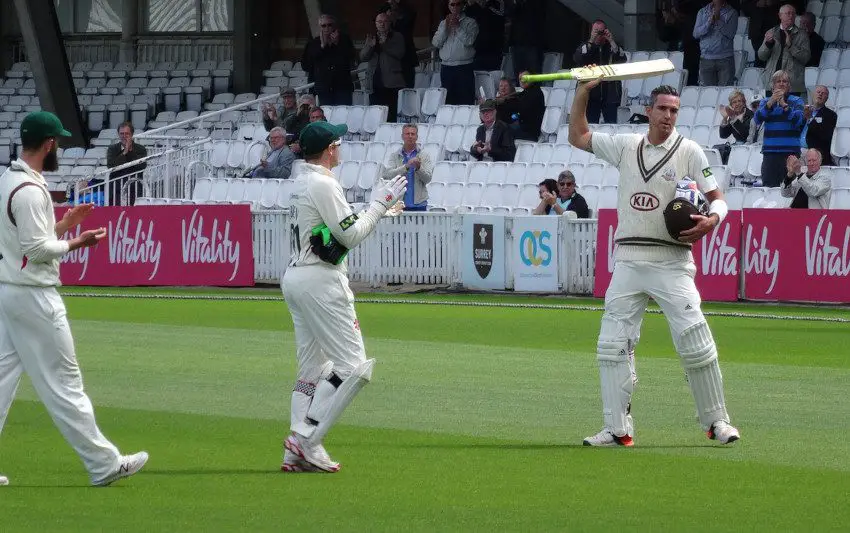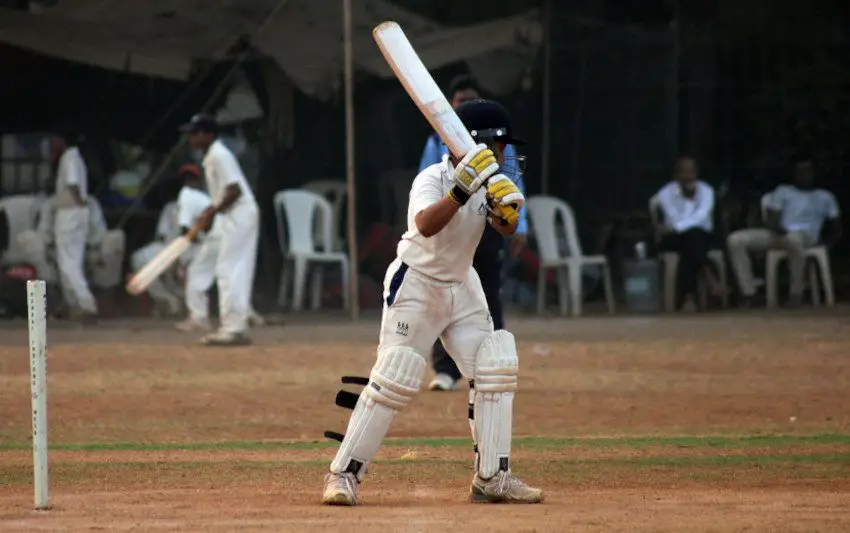Table of Contents
They are the men and women in charge of the team and the responsibility for winning or losing lies with them. There have been some brilliant, inspirational captains in the history of cricket but who has been the best of them all?
Who is the Best Cricket Captain in the World?
Statistics show that India’s Virat Kohli is the best captain in the world right now. He leads by example with his brilliant batting which has helped his team get over the line on many occasions. As a leader, Kohli inspires his teammates and he has turned India into a formidable side both home and away. As a captain and a world beating batsman, Kohli heads the current list.
He is also number 1 with the most man of the series awards in T20I, and number 3 on the ODI list.
The Most Successful Captains by Highest Winning Percentage
Although the above list is partially subjective, it is mostly based on this list of the most successful cricket captains by highest winning percentage.
Top 10 Cricket Captains in Cricket History
1. Ricky Ponting (Australia)
Similarly to Virat Kohli, Ricky Ponting was a man who led from the front. What I mean by that is he showed an example to the rest of his team by making big runs at crucial moments in the game.
In terms of games in all three formats, Ponting skippered his side in 324 matches from 2002 to 2012. That was a record until he was overtaken by MS Dhoni a few years later. The Aussie won 220 of those games meaning that he had a phenomenal win percentage of 67.9%.
Even on those rare occasions when his side was struggling, such as in the 2005 Ashes series in England, Ponting would still respond with the bat. He scored over 27,000 international runs with an incredible 71 centuries across all three formats.
In the modern day, Ricky Ponting works as a respected coach and commentator where he continues to reveal his outstanding cricketing knowledge.

2. MS Dhoni (India)
Mahendra Singh Dhoni was a hero to a generation of Indian cricket fans and he was highly revered by the players that he led. It’s quite rare for a wicket keeper to skipper any team but it gave Dhoni the perfect position from which to direct the game.
He was also a calming influence and, even in the fast paced T20 arena, he could slow the match down, assess the situation and often win games from losing positions. With the bat, he was India’s finisher and his finest moment came as he hit the winning runs in the 2011 World Cup final.
As we just saw, Dhoni holds the record for appearances as an international captain across all three formats. He led India in 332 matches, winning 178 of them for a win percentage of 53.61.
MS Dhoni made six test hundreds with a best of 224 but he excelled in the one day area where 10 ODI centuries saw him finish with a career batting average of above 50.
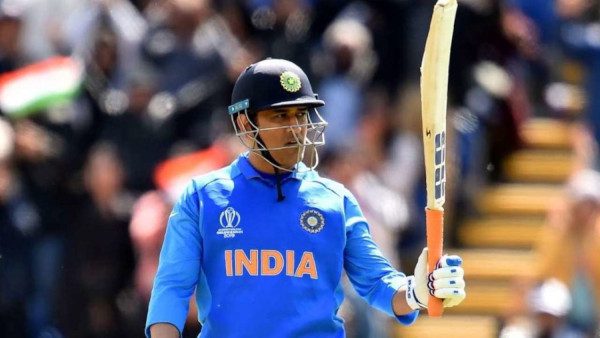
3. Steve Waugh (Australia)
Steve Waugh is an interesting name on this list. He wasn’t the most naturally gifted of players but he made the most of his talents and he became Australia’s most successful captain along the way.
In terms of win percentages, nobody can match the elder Waugh brother. He captained Australia in 57 test cricket matches and his side won no fewer than 41 of those games. That equates to a win percentage of 71.92 and that’s a level that no other skipper has been able to match.
Steve Waugh wasn’t the best player in his side but he performed at his most effective when Australia needed him. His batting record improved with 32 centuries in tests and a best of 200. He averaged over 50 and also claimed 287 international wickets with the ball.
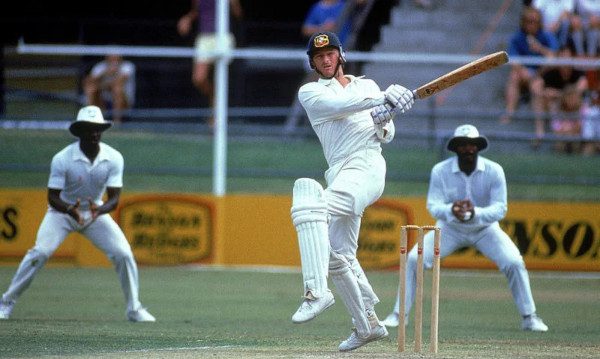
4. Graeme Smith (South Africa)
Circumstances meant that Graeme Smith was handed the South African captaincy at a very young age but he showed great maturity as he accepted the challenge. A stubborn left handed batsman, he opened the innings for the team so he literally led from the front.
His slow paced run accumulation meant that Smith didn’t enjoy as much success in limited overs cricket but he does hold a record in test matches. He skippered his team in 109 matches between 2003 and 2014 and that’s more than anyone else in this format of the game.
His stats, both as a batter and skipper are impressive too: Smith oversaw just 29 losses in those 109 test matches so he avoided defeat in 80 of his games. He also scored 37 international hundreds, and averaged over 48 in tests with a best of 277.

5. Clive Lloyd (West Indies)
Clive Lloyd led the West Indies to success in the first two editions of the men’s World Cup so he is already assured of a place in history. He was the best leader of a group of talented players who needed someone like Lloyd to bring them all together and get the best out of them.
As a player, he is remembered for his batting but his slow medium pace bowling was a useful weapon at times. Between 1974 and 1985, Clive Lloyd led the West Indies in 158 games in tests and ODIs, winning exactly 100 of them.
He also scored just under 9500 international runs and made 20 centuries in the two formats.
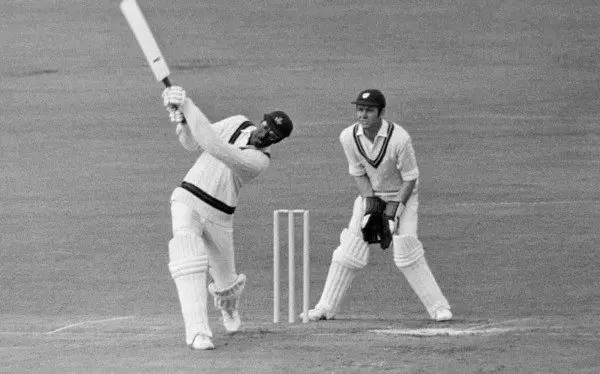
6. Stephen Fleming (New Zealand)
New Zealand teams often seem to ‘punch above their weight’. What I mean by this is that the quality of individual players seems low compared to the opposition but the side often surprises us by winning series and going deep into World Cups.
The man who started this trend was Stephen Fleming. A brilliant left handed batsman, he is another to have led by example with a career best of 274 and a batting average in excess of 45.
He’s third on the all time skippers list – behind Dhoni and Ponting – leading his team in 303 matches. Fleming won 128 of those games but he didn’t have the talented team to work with that others enjoyed.
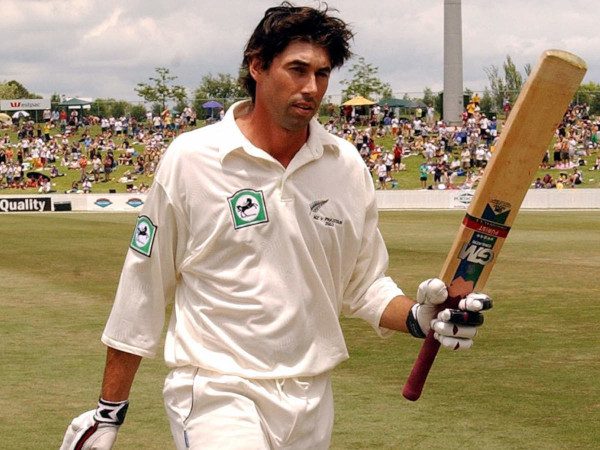
7. Allan Border (Australia)
Statistics don’t always tell the full story and there are clear reasons why Allan Border could have finished higher up this list. He inherited a poor Australian team in 1984 but, by the time he retired ten years later, he had turned them into world beaters.
He was known as Captain Grumpy and he could be very abrasive – even with his own players. Border led Australia to World Cup success in 1987 and his overall win average was above 50% which is remarkable considering the weak nature of the team when he took over.
Allan Border also averaged over 50 with the bat and he once took the remarkable figures of 7/46 with his occasional left arm spin.
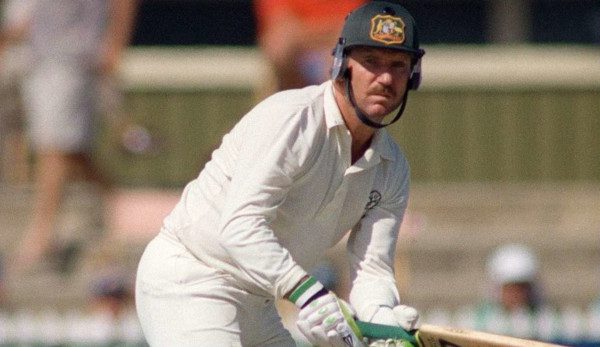
8. Hansie Cronje (South Africa)
It’s a controversial selection because of Cronje’s eventual involvement with match fixing. The sad thing about that was his willingness to involve other, more vulnerable members of his team.
Does he deserve to be on this list? Statistically there is no denying that he was a great leader and that he delivered genuine success before his attentions were drawn by those who didn’t have cricket’s best interests at heart.
His record was impressive with 126 wins in 191 overall games with a win percentage of 65.96. It’s a strong return but it would have been even better if he wasn’t willing to throw the occasional match.
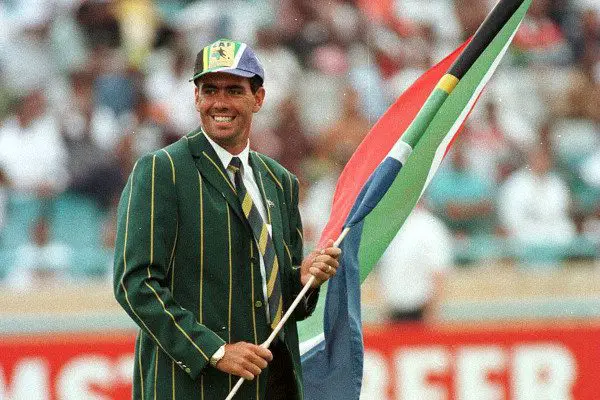
9. Imran Khan (Pakistan)
Being a leader must be in Imran Khan’s make-up. After skippering Pakistan on the cricket field, he would later enter politics and become the country’s Prime Minister.
Imran was in charge during his side’s finest hour as they overcame favourites England to win the 1992 World Cup. By that stage, he was already known as one of the finest all rounders that the game had ever produced.
Compared to some names on this list, Imran’s win percentage was relatively low at 47.59 across all formats but he left a brilliant legacy that his successors have picked up.

10. Viv Richards (West Indies)
Some say that Viv Richards’ job as captain of the West Indies was an easy one. After all, he skippered the side when they were the best in the world, thanks mainly to their fearsome battery of pace bowlers.
Richards only led his side in 50 test cricket matches but a 54% win percentage is better than most of his contemporaries. And, as the greatest batsman of his era, there was never a better player to lead by example.

What Makes a Good Cricket Captain?
It’s a difficult question to answer and, we have seen in this guide that there are many different styles of captaincy. I would say that a skipper needs to lead by example when it really matters. Compiling big scores or taking wickets when a side is struggling is a key factor.
Having the respect of your team and being able to man manage every single player is also crucial. It’s a comprehensive set of factors but all of the players on this list have succeeded in their own ways.

